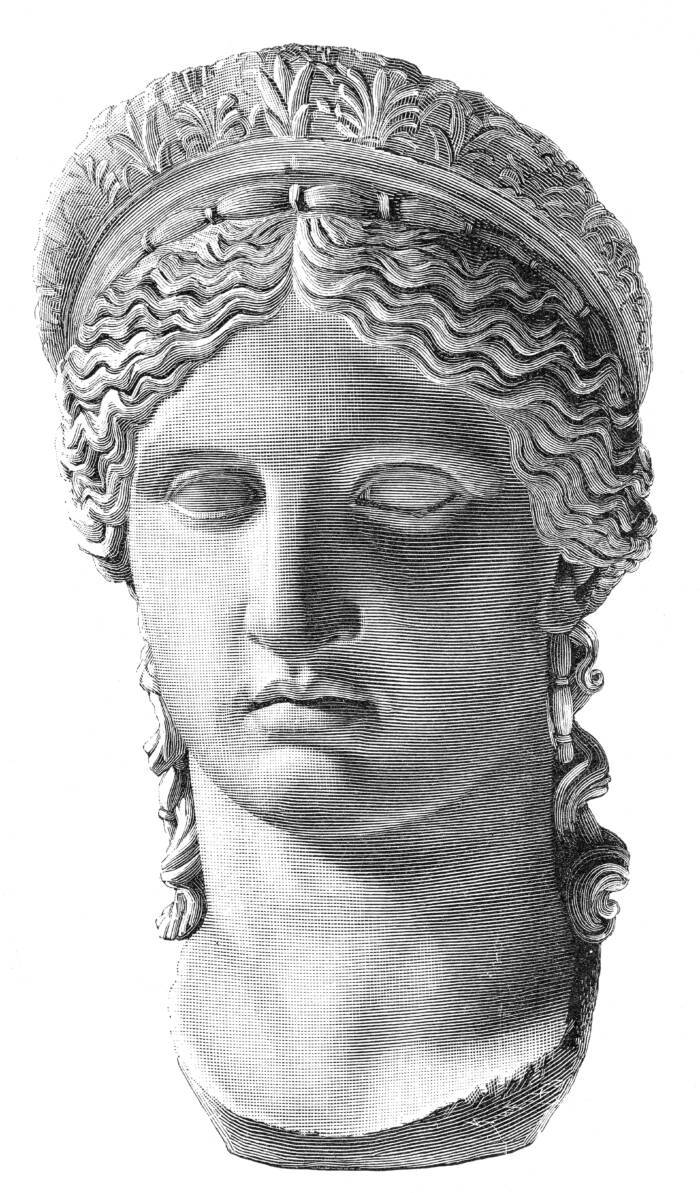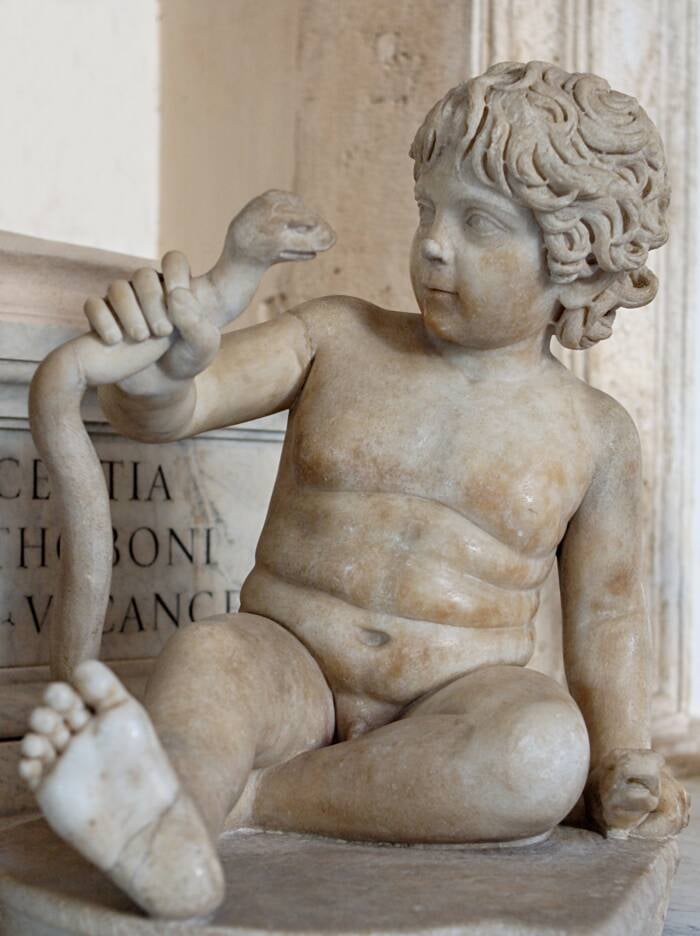Hera, Queen Of The Greek Gods And Protector Of Marriage

FALKENSTEINFOTO/Alamy Stock PhotoThe ancient Greek goddess Hera (known as Juno to the Romans), the wife of Zeus.
Hera was known primarily as the goddess of marriage and childbirth, although her domain extends to the sanctity of the family and the loyalty that binds spouses together — a tragedy, in part, due to Zeus’ frequent womanizing.
Hera’s origins are tied deeply with the earliest days of Greek religious practices, and worship of her was widespread across the ancient Greek world.
Once Zeus freed Hera and her siblings from the belly of Cronus, Hera quickly ascended as a central figure among the gods. She married Zeus, becoming his consort and the Queen of Olympus and the 12 Olympians. This marriage, however, was notoriously tumultuous.
Zeus’ frequent infidelities and Hera’s subsequent jealous retaliations were a recurrent theme in the mythology of the Greek gods. Despite this strife, Hera remained a symbol of monogamy and fidelity — qualities she fiercely upheld, though often through vengeful means against her rivals and their offspring with Zeus.

Wikimedia CommonsA statue of young Heracles strangling a snake sent by Hera to kill him.
Among the most famous myths involving Hera are those related to the hero Heracles (Hercules in Roman mythology), the son of Zeus and the mortal woman Alcmene. Hera’s jealousy and hatred for Heracles spurred numerous attempts to kill the demigod, beginning with sending serpents to his cradle and culminating in a series of nearly impossible tasks known as the Twelve Labors.
Hera’s worship was significant, with major cult centers in Argos and Samos, where annual festivals celebrated her mythos and influence. The Heraia, a festival held at Olympia, featured athletic competitions among women, and in Samos, her supposed birthplace, a grand temple was erected in her honor. At the time, it was believed to be one of the largest temples built in honor of any of the 12 Olympian Greek gods and goddesses.

Public DomainJupiter and Juno on Mount Ida by James Barry, 1773.
Despite her often vindictive personality in mythology, Hera was revered as a guardian of the sanctity of marriage and a figure who could bestow and protect the royal power, serving as a representation of the ancient Greeks’ deep-seated reverence for family and lawful order.





